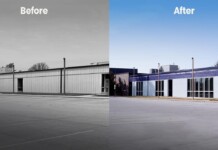 Alarmed by the intensity of angry and sometimes violent language coming out of public meetings on healthcare and other issues, the National Council of Churches Governing Board has called for “civility in public discourse.”
Alarmed by the intensity of angry and sometimes violent language coming out of public meetings on healthcare and other issues, the National Council of Churches Governing Board has called for “civility in public discourse.”
Citing God’s call in Isaiah 1:18 to “reason together,” the NCC letter affirms the value of “vigorous, principled debate” but insists that the arguments “be tempered with a profound sense of the dignity and worth of each person.”
The Governing Board issued its open letter September 25, which was initiated by the NCC Health Task Force during meetings last week.
Media reports have shown angry demonstrations outside halls where President Obama has defended his healthcare reform proposals. Demonstrators have carried posters portraying the President as Adolf Hitler or as a monkey.
“This clash of views demeans the dialogue and ultimately risks subverting the democratic process itself,” the Governing Board said in a statement that passed without dissent. “Individuals cannot express their best hopes and acknowledge their deepest fears within a climate of intimidation and character assassination, and all too often this climate is the product of racism and xenophobia.”
The message calls on churches, political leaders and persons of good will to reflect “on the ways we might restore dignity and civility to the national discourse.”
Throughout its history, the ecumenical movement “has provided a common venue for persons to express and debate differing viewpoints in an atmosphere of mutual respect,” the message said. “Let us make clear to ourselves and others those marks of civility that represent the best of our faiths and that can serve as foundational to rigorous, honest public discourse for the common good.”
(Photo from Morguefile.com)
An Open Letter Concerning Civility in Public Discourse – Full Message from National Council of Churches, USA
“Come now, let us reason together, says the Lord.” Isaiah 1:18 (RSV)
The current national health care reform debate is a reflection of the broad diversity of views held by the American people. This diversity can be seen not only in relation to health care provisions themselves but, also as regards the proper role of government and even the perceived definition of community. This breadth of perspectives constitutes a rich heritage of insight and experience and is a cherished resource to the ordering of our common life.
Yet, recent days have offered a sobering portrait of a debate grown rancorous and acrimonious. This clash of views demeans the dialogue and ultimately risks subverting the democratic process itself. Individuals cannot express their best hopes and acknowledge their deepest fears within a climate of intimidation and character assassination, and all too often this climate is the product of racism and xenophobia. Too much is at stake for the good of our society for us to continue down this dangerous path. The essential nature of our national compact, to enfranchise the views of all, is imperiled in a hostile and suspicious environment. In this moment, then, we call the members of our churches, our political leaders, and all people of good will to somber reflection on the ways we might restore dignity and civility to our national discourse both as a matter of social ethics and to bolster the highest traditions of democratic process.
The prophet Isaiah (1:18) declares God’s message to the people to “Come let us reason together”. This injunction might serve us well in the present moment. Reason, (yakah), in this passage does not refer to a dispassionate meeting of the minds but, rather calls for convincing, persuading and presenting a case for a point of view. Vigorous, principled debate advances our thinking and clarifies the challenges before us. Respect for neighbor strengthens the fabric of our communities.
Let us then, as a people, draw from our deepest traditions of faith and heritage to gain a renewed sense of community marked by honesty and mutual respect. Let our moments of rigorous debate be tempered with a profound sense of the dignity and worth of each person. Let us debate ideas on their merits and exercise restraint in expression of our own best conceptions. Such a disciplined dialogue holds great promise, honoring our differences and confirming our perception that we are a people joined in our mutual aspiration to live the lives for which we were created.
Let us as member churches and brothers and sisters of other living faiths model the civility to which our sacred texts command. Throughout its history, the conciliar ecumenical movement has provided a common venue for persons to express and debate differing viewpoints in an atmosphere of mutual respect. Let us make clear to ourselves and others those marks of civility that represent the best of our faiths and that can serve as foundational to rigorous, honest public discourse for the common good.




















Amen to that!:-)
I believe in civility and in the innate good in all of mankind. That organized religion have taken the initiative on this makes my heart happy… and my feet too! Praise the Lord!